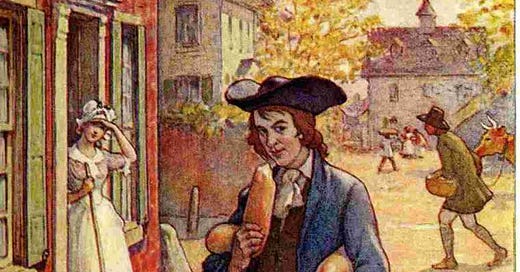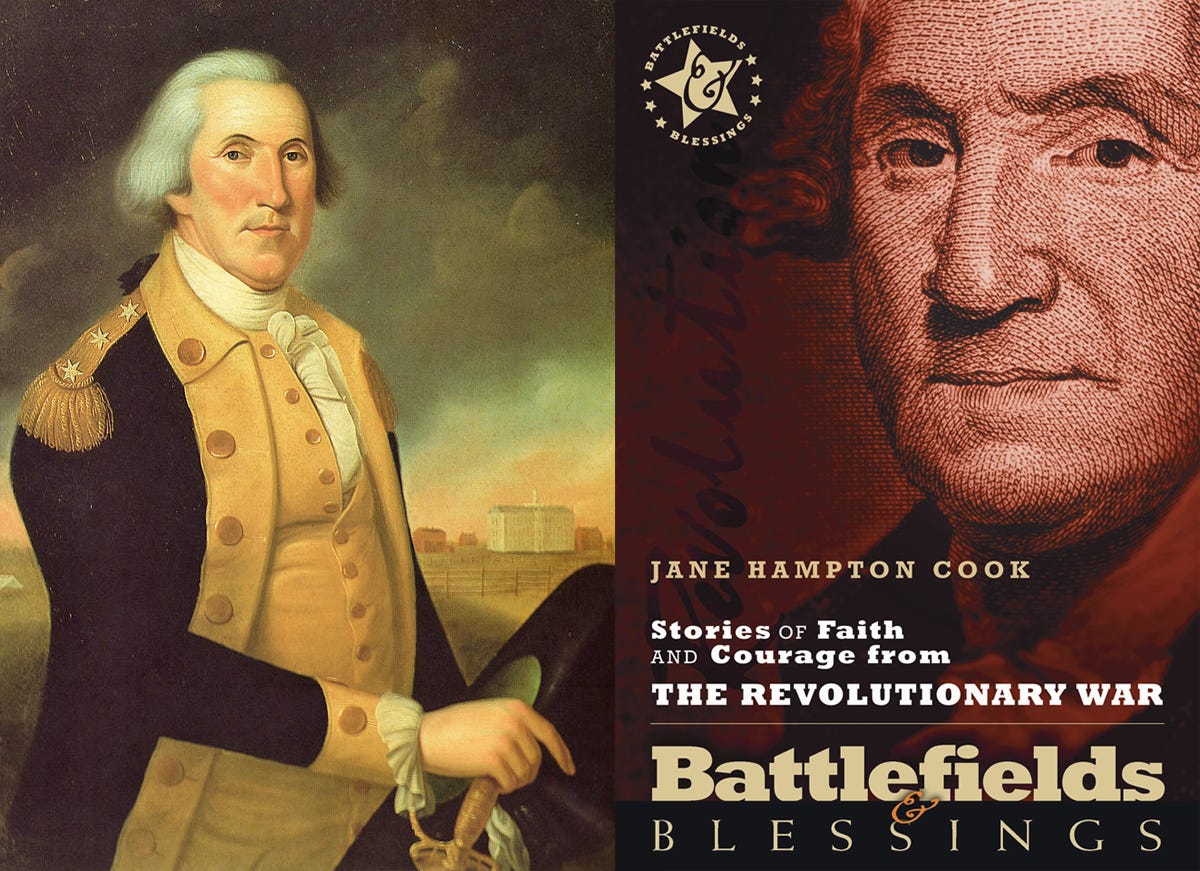Pt. 1: "Selfie" Advice from Ben Franklin's Father
What can we learn from the wisdom of Ben Franklin's father 318 years later?
When Benjamin Franklin was only four-years-old in 1710, his father Josiah Franklin wrote him a poem. The fact that Ben kept this poem shows that he valued the gift of both his father’s verses and advice. What can we learn from his father’s 318-year-old poem? Plenty, especially his concern about the “selfe.”
On the surface, Josiah Franklin appears to have little relevancy to today’s social media world that is filled with sleek images of the Kardashians and other celebrities. Nor does he seem to have much in common with today's information age, where “knowledge” is supposedly a simple Google search away.
Yet, what Josiah told Ben about how much to value the “selfie” is among the many gems he passed along in a mere 120 words, which is the focus of this four-part series. Part 1 about the “shelfe and selfe” is below and parts 2-4 will focus on education, fraud and falsehoods, and faith.
An Acrostic to Benjamin Franklin in New England, July 15, 1710, from Josiah Franklin. Notice that the first letters of the first three lines spell out “BEN” and the first letters of the last eight lines spell out “FRANKLIN.”
Be to thy parents an Obedient son;
Each Day let Duty constantly be Done;
Never give Way to sloth or lust or pride
If free you’d be from Thousand Ills beside.
Above all Ills be sure Avoide the shelfe:
Mans Danger lyes in Satan, sin and selfe.
In vertue, Learning, Wisdome progress make.
Nere shrink at suffering for thy saviours sake;
Fraud and all Falshood in thy Dealings Flee;
Religious Always in thy station be;
Adore the Maker of thy Inward part:
Now’s the Accepted time, Give him thy Heart.
Keep a Good Conscience, ’tis a constant Frind;
Like Judge and Witness This Thy Acts Attend.
In Heart with bended knee Alone Adore
None but the Three in One Forevermore.
What stood out to me the first time I read this poem were the words “shelfe” and “selfe” from these lines:
“Above all Ills be sure Avoide the shelfe: Man’s Danger lyes in Satan, sin and selfe.”
These Old English spellings of the words “shelf” and “self” reminded me of our modern word “selfie,” which is a photo that one has taken of oneself. Often these images are posted on social media sites. Selfie can also be a metaphor for vanity or too much emphasis on oneself.
Josiah wanted Ben to “avoide the shelfe.” This meant that he didn’t want his son to be idle and stale, like an unused item on a shelf. Instead, he wanted his son to be active and busy. But he also wanted Ben to avoid being too focused on himself.
“Man’s danger lies in Satan, sin, and self.” Vanity was not a virtue in the Franklin household. Ben’s father understood that being too focused on oneself is detrimental to individuals, families, and communities.
What would Josiah or Ben Franklin say about the presence of vanity in our culture today? Would they say that our society is highly vain, narcissistic, and at times nihilistic? How could they not.
Megyn Kelly addressed the issue of vanity on her podcast, The Megyn Kelly Show, in early October 2022. Kelly is a former Fox News Channel anchor and NBC host.
“The selfie culture is abhorrent to me,” Kelly said. As the New York Post reported, Kelly recalled her NBC interview with the Kardashian clan on the 10th anniversary of their wildly popular E! reality show series Keeping Up With The Kardashians. The show propelled this family to stardom and multi-billion-dollar product lines.
At the time, Kelly asked the Kardashians if their self-promoting approach was a force for good or for evil. They, of course, responded positively. Since then, Kelly has observed them, which led her to a different opinion.
“But the more I’ve watched them over the years, the more net, net, I think that it’s evil,” she told her podcast viewers.
Kelly slammed the Kardashian reality television-star family as “a force for evil” because they have flaunted “unrivaled vanity.” This has fueled a societal “focus on one’s self” and “ego” in the pursuit of “clicks” and “likes.”
“I don’t think this is healthy and that’s why I object to — it’s their disgusting vanity which is spread like wildfire in our society,” Kelly concluded.
Kelly was pointing out what happens when people put too much emphasis on themselves. Though technology has changed over the centuries, the human heart has not changed. Kelly’s disgust with the selfie culture is the same concern that Josiah Franklin had for his 17 children. He didn’t want them to become too self-focused and vain.
When Josiah warned four-year-old Ben Franklin to avoid both the shelf and the self, he had no idea that his son would grow up to become a colonial celebrity, a Renaissance man who excelled in many areas and rose to fame.
As a young adult, Ben Franklin moved to Philadelphia, where he bought a newspaper and turned the Pennsylvania Gazette into the most popular newspaper in the colonies. He also conducted lightning and other ground-breaking experiments, which he popularized through his best-selling and humorous annual book Poor Richard’s Almanac. Ben clearly did not live his life like an elf on a shelf.
As I wrote about in Stories of Faith and Courage from the Revolutionary War, Ben’s father taught him many sayings from the book of Proverbs in the Old Testament. These inspired Ben to craft many of his own wise and witty quips. He wrote this one against vanity and narcissism: “He that falls in love with himself will have no rivals.” Poor Richard’s Almanack, 1739
While Franklin received acclaim for these and many other accomplishments, he also stayed grounded and didn’t become too self-absorbed. He was concerned about the welfare of those around him. In the 1750s, Franklin developed a vision for uniting Britain’s American colonies under a common government that could settle disputes among them and with their mother country, England.
He recognized that the colonies did not have representation in Parliament and sought to create their own version of it while remaining British subjects. He brought leaders together in Albany, New York, in July 1754 to discuss and implement the Albany Plan of Union. The problem facing Franklin at the time was simple. His fellow colonists weren’t ready to unite. They didn’t see the value of a common government.
Although Franklin’s plan for unity failed at the time, he planted the seeds for unity that came together during the American Revolution in 1776, when the American colonies changed their identity from colonies to states.
They united together to declare independence from England and form the United States of America. If Ben had been too focused on himself—if he had been too idle and vain as his father had warned him—he wouldn’t have had the wisdom and perspective to look out for the interests of his fellow men and women.
America benefited from Ben Franklin’s vision and his father's advice. It’s a good thing he avoided the shelf and the self. Megyn Kelly is also correct. A “selfie culture” is not a healthy culture.
Stay tuned for future installments of this series on Advice from Ben Franklin’s Father that will focus on the role of education, the problems of fraud and falsehoods in society, and the importance of faith.









